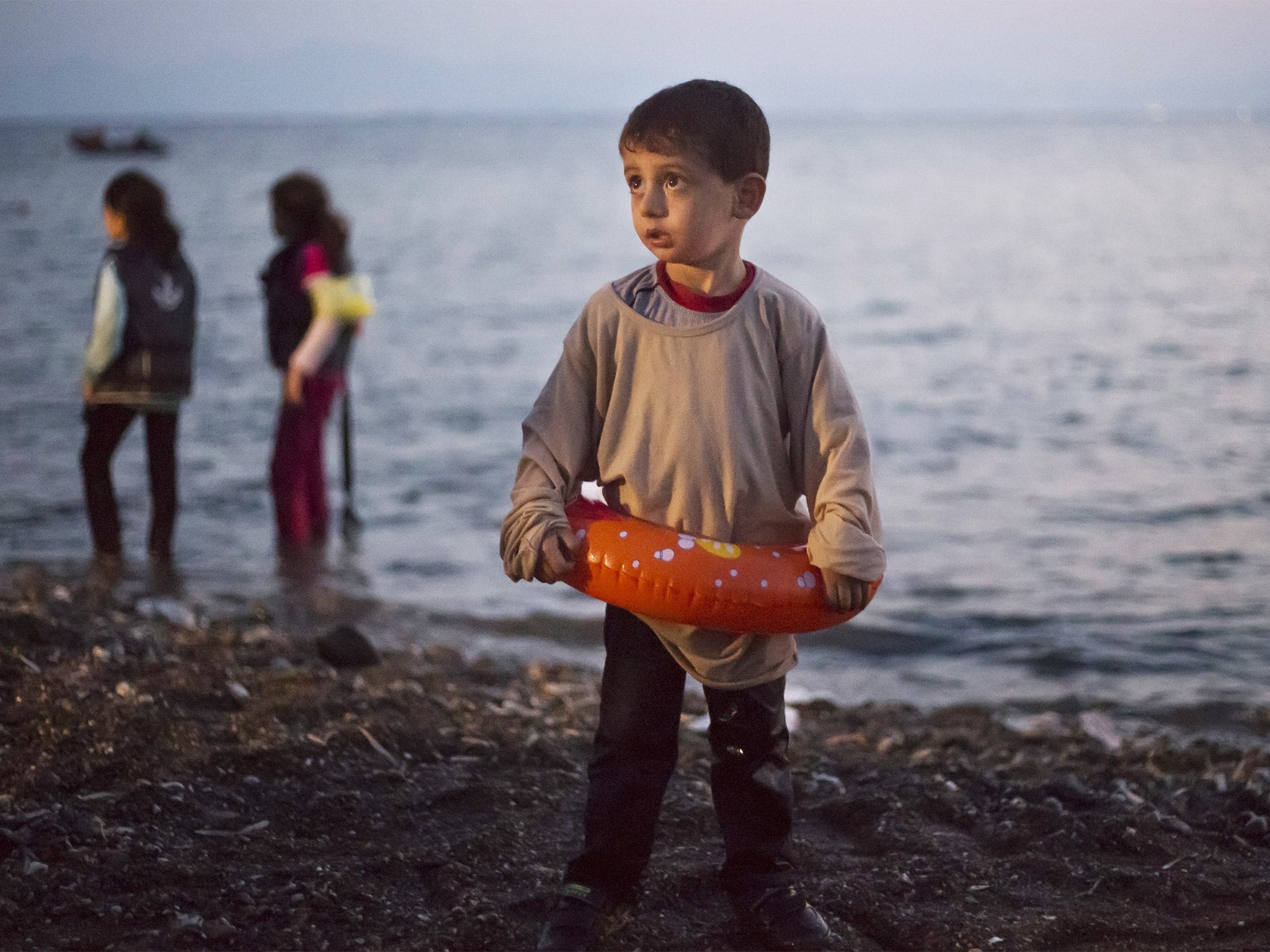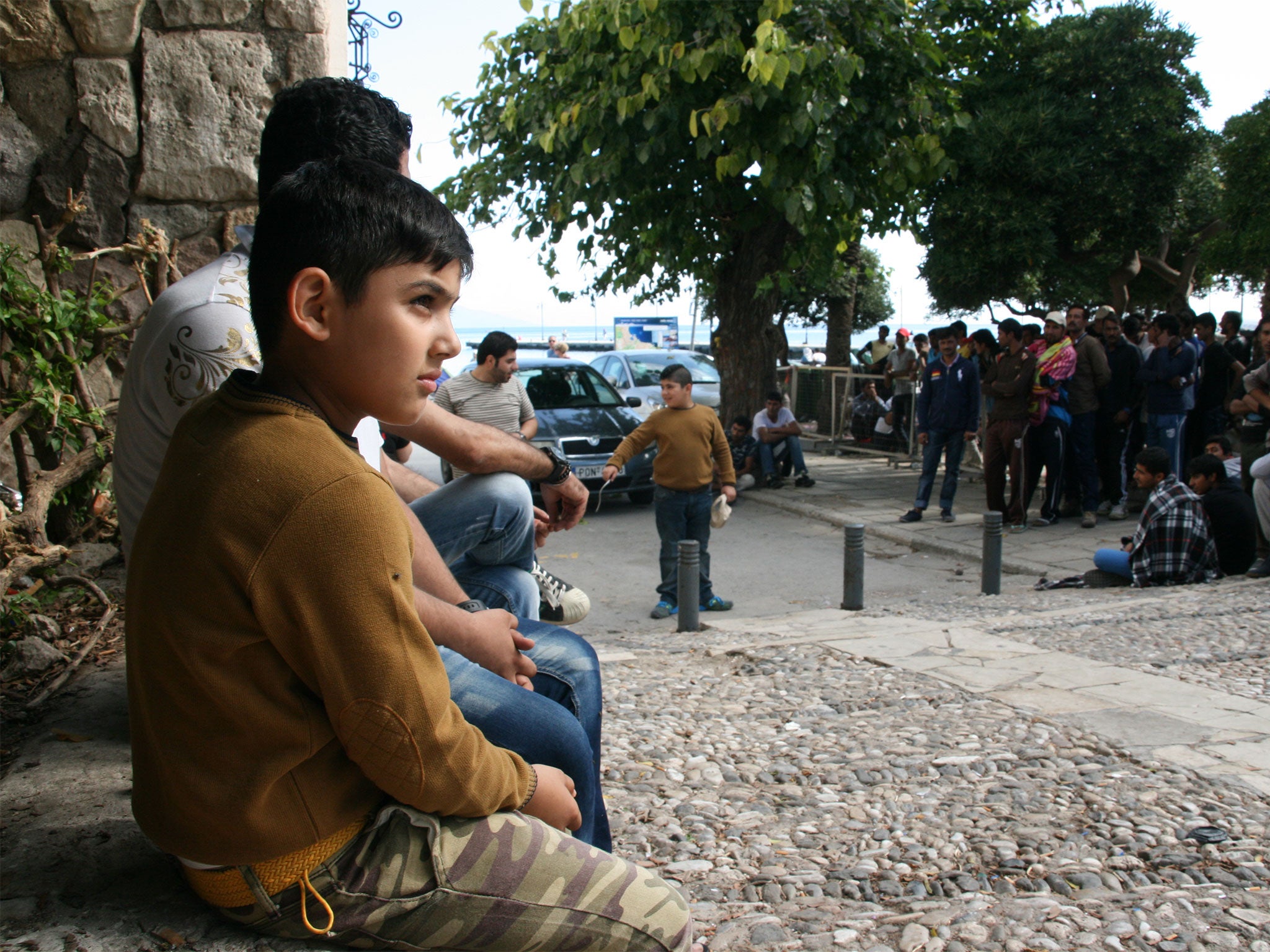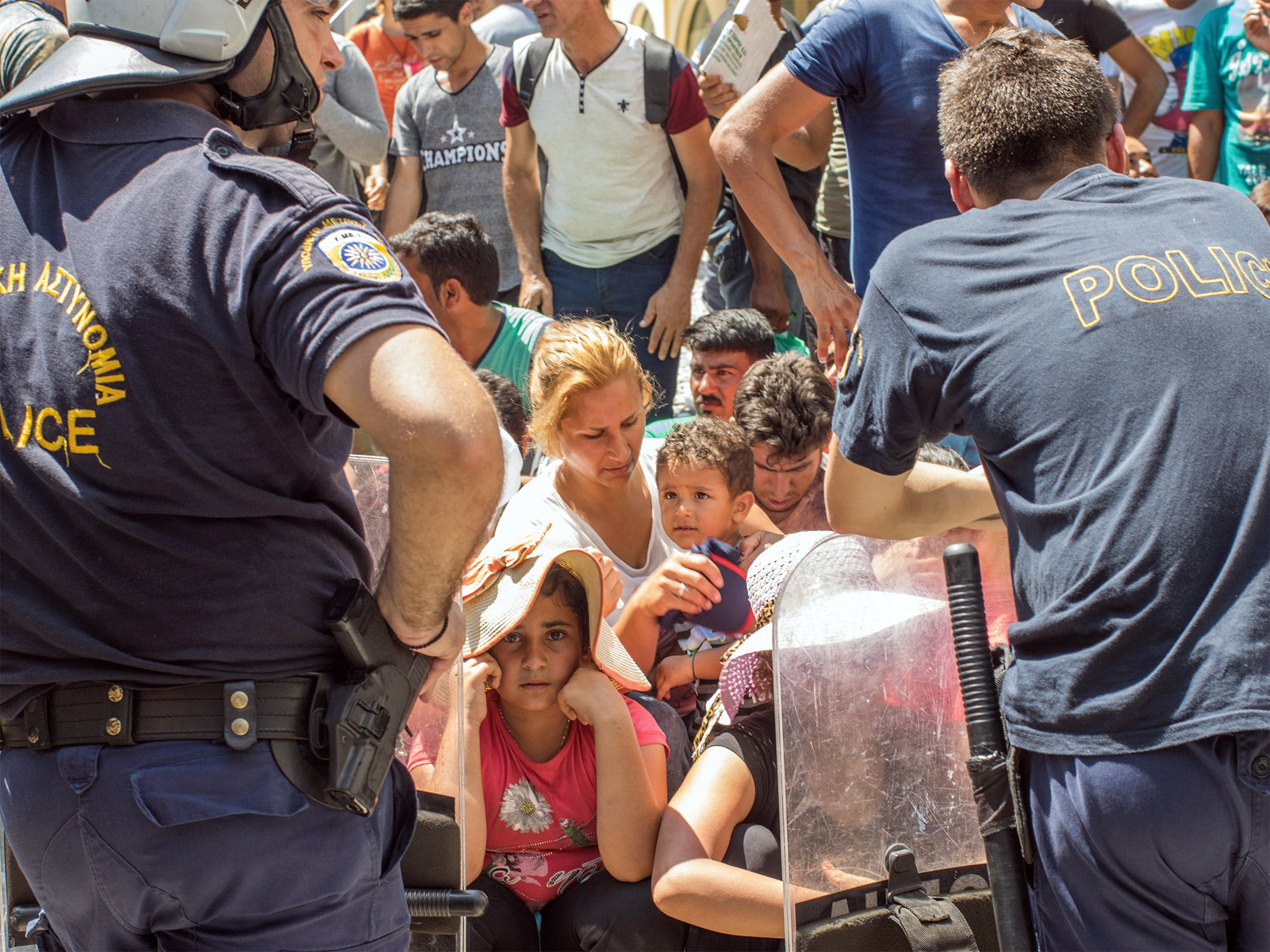Refugee crisis: 'Orphan' children locked up in 'medieval' prisons alongside adult criminals on Greek island of Kos
After arriving by boat from Turkey, children as young as 11 are routinely being detained in filthy police cells - and the UN has been forced to intervene

Your support helps us to tell the story
From reproductive rights to climate change to Big Tech, The Independent is on the ground when the story is developing. Whether it's investigating the financials of Elon Musk's pro-Trump PAC or producing our latest documentary, 'The A Word', which shines a light on the American women fighting for reproductive rights, we know how important it is to parse out the facts from the messaging.
At such a critical moment in US history, we need reporters on the ground. Your donation allows us to keep sending journalists to speak to both sides of the story.
The Independent is trusted by Americans across the entire political spectrum. And unlike many other quality news outlets, we choose not to lock Americans out of our reporting and analysis with paywalls. We believe quality journalism should be available to everyone, paid for by those who can afford it.
Your support makes all the difference.The United Nations refugee agency has been forced to step in to save scores of “orphan” children from detention in filthy police cells on the Greek island of Kos after its complaints at the squalid conditions went unheeded.
Children as young as 11 who arrived by boat from Turkey without their parents or other adult relatives have been held for weeks at a time in cells smeared in faeces, alongside adult criminals, while Greek authorities determined where to relocate them.
Greek officials say they are obliged to keep the children securely for their own safety as legal minors. But volunteers from a non-governmental organisation that visits prisoners at Kos’s central police station every day said they were shocked by the “medieval” conditions there.
They are provided with only one meal a day, in addition to fresh fruit and water that is supplied by charities and aid agencies, and on at least one occasion children in police detention went for two days without food. They are not allowed to go outside and are handcuffed if they are moved to a different location, several witnesses said.
“It’s really filthy,” one volunteer, who asked not to be named, told The Independent. “There are bare electrical wires sticking out of the ceiling… There is shit on the floor and it is running out of the cell. They have to reach out through bars to receive their food. This is not normal in Europe.”
The United Nations High Commissioner for Refugees (UNHCR) has been warning the Greek government and local authorities about the poor conditions since it developed a presence on the island in May. Hard-pressed Greek officials have been battling to cope with the influx of tens of thousands of refugees and migrants arriving by boat from Turkey, often at the rate of more than 1,000 a week.
Now the UN body has intervened, and has reached an agreement with Kos’s public prosecutor that such children will in future be placed in the care of an NGO, which will run its own shelter for them with UN funding.

“Clearly [custody] remains a state responsibility. However, given the fact that is not happening at the speed needed for the numbers of refugees arriving in Greece, the UN has been happy to step in and help,” said Marco Procaccini, director of the UNHCR office on the island.
At present a total of 11 children aged between 12 and 17 are being held in two Kos police stations, The Independent has been told.
The UN Convention on the Rights of the Child states that children are entitled to special protection and help if they are refugees and should not be placed in prison with adults. While EU agreements lay out guidelines for the protection of unaccompanied minors, each country has its own specific legislation.
We keep them there for their own safety
According to Greek law, those claiming asylum who cannot be matched up with relatives are automatically placed in the custody of the public prosecutor until they can be put under the supervision of a suitable legal guardian. In practice, this means they are handed over to the police while they wait to be placed at a long-term care facility elsewhere in Greece. This can take anything between a few days and several weeks, Mr Procaccini said.

Tim Ubhi, the clinical director of the British organisation Children’s E-Hospital, who visited the police cell three times during a recent visit to help refugees on the island, said the conditions were very poor. “It’s a horrible cell,” he said. “It’s like a medieval dungeon – there’s no other way to describe it.”
Mr Ubhi said that the conditions in which the children are held may have a devastating impact on them. “From a physical and a psychological point of view, as well as emotionally, this is quite disturbing,” he said.
Since May the UNHCR has encouraged police to transfer some teenagers from Kos town police station to another, 12 miles outside, where they are incarcerated in a single room but are at least separate from other prisoners. They remain locked in for most of the day.
“They don’t let them out because they are under 18,” said Sevastianos Marangos, head of Kos’s Civil Protection Office. “We keep them there for their own safety.”
But others are still being held in the central police cell. On Wednesday there were seven there, alongside more than a dozen adults. “They are not looking good,” said a volunteer who had visited the cell several days in a row. “You can see it in their eyes.”
Mr Marangos said Kos had been unprepared for the volume of refugees who began arriving in the spring. He said the island, which has a population of 30,947, has not received enough funding or additional staff to meet the refugees’ needs. More than 42,000 have arrived on the island this year, with 337 in a single day last weekend.
“This problem was faced for the first time in Kos,” Mr Marangos said. “We have tried the best we could to keep the island clean and safe.”
Stella Nanou, public information officer for UNHCR in Greece, said the practice of detaining children in police custody while they await transfer to longer-term care was being repeated in other parts of the country. The UNHCR has repeatedly warned the government about its capacity to accommodate unaccompanied minors seeking asylum, most recently in April this year.
Join our commenting forum
Join thought-provoking conversations, follow other Independent readers and see their replies
Comments